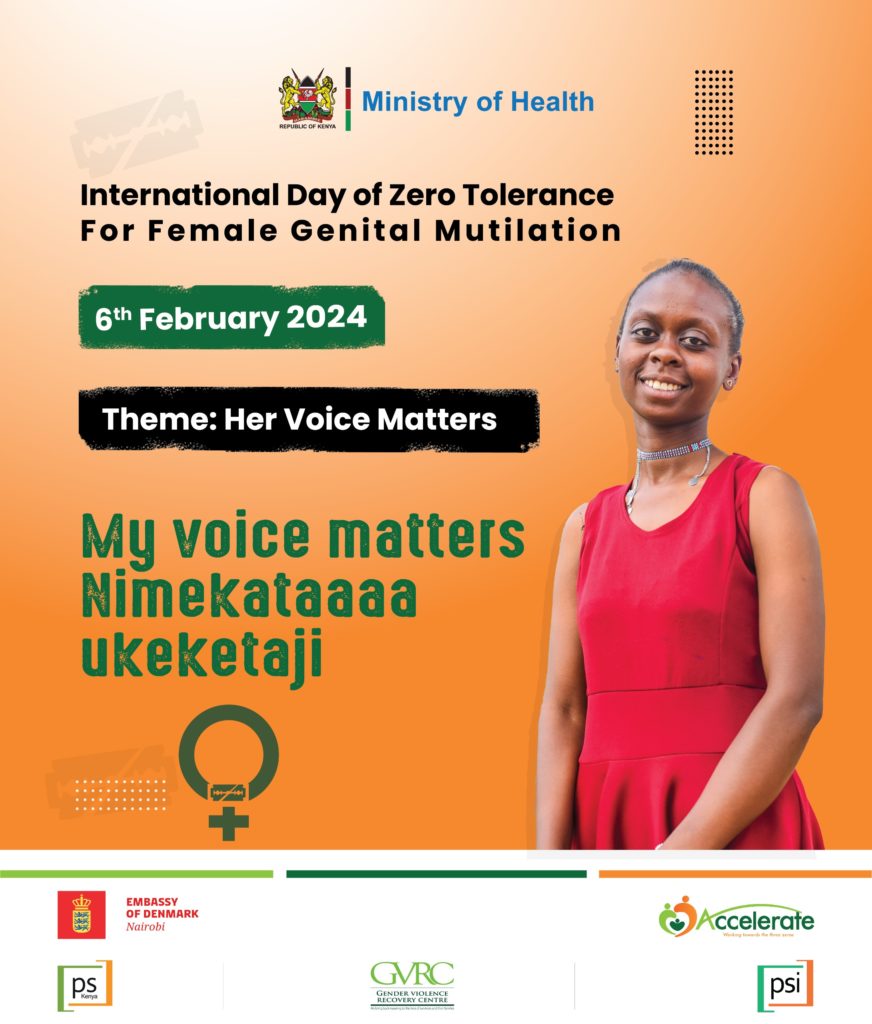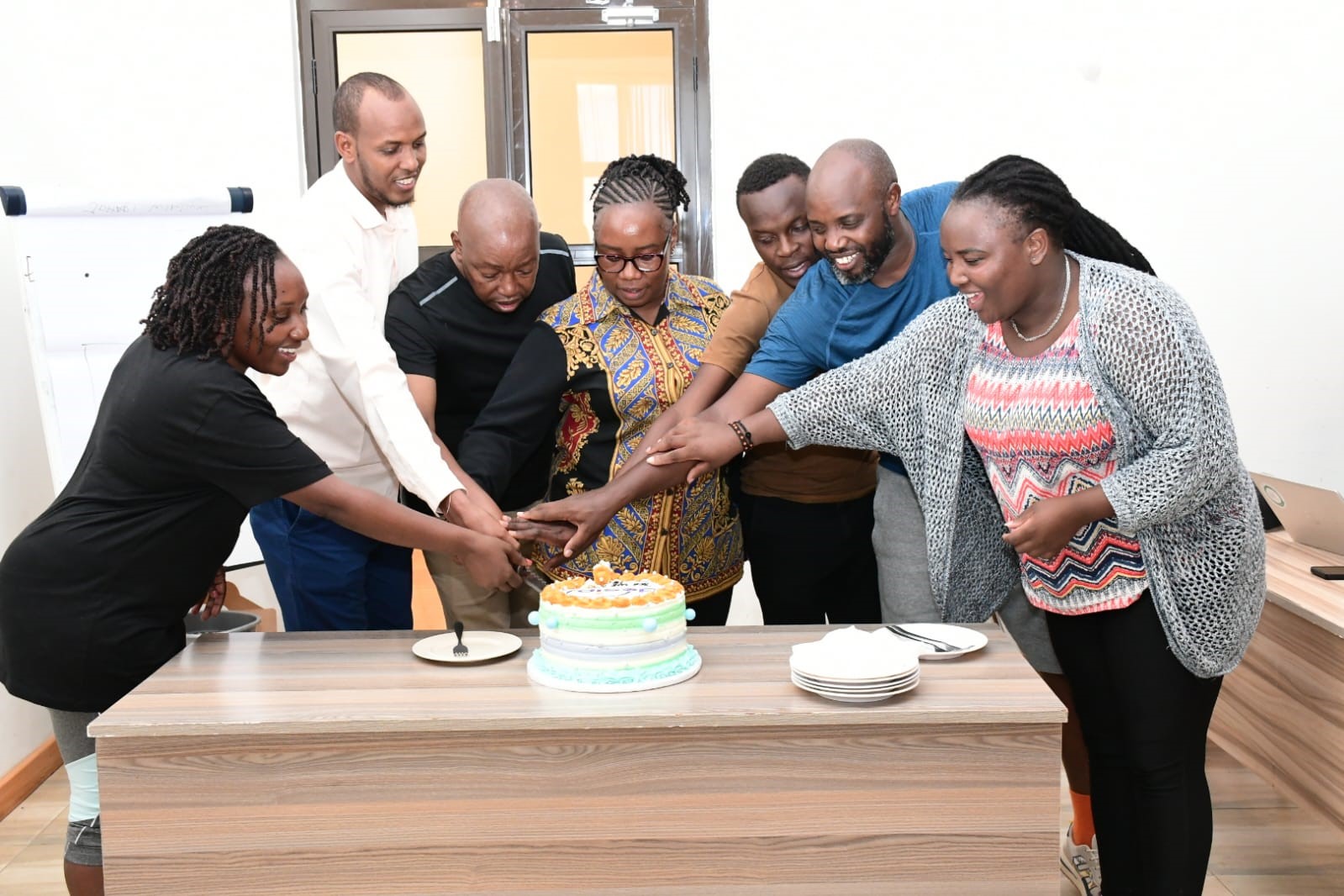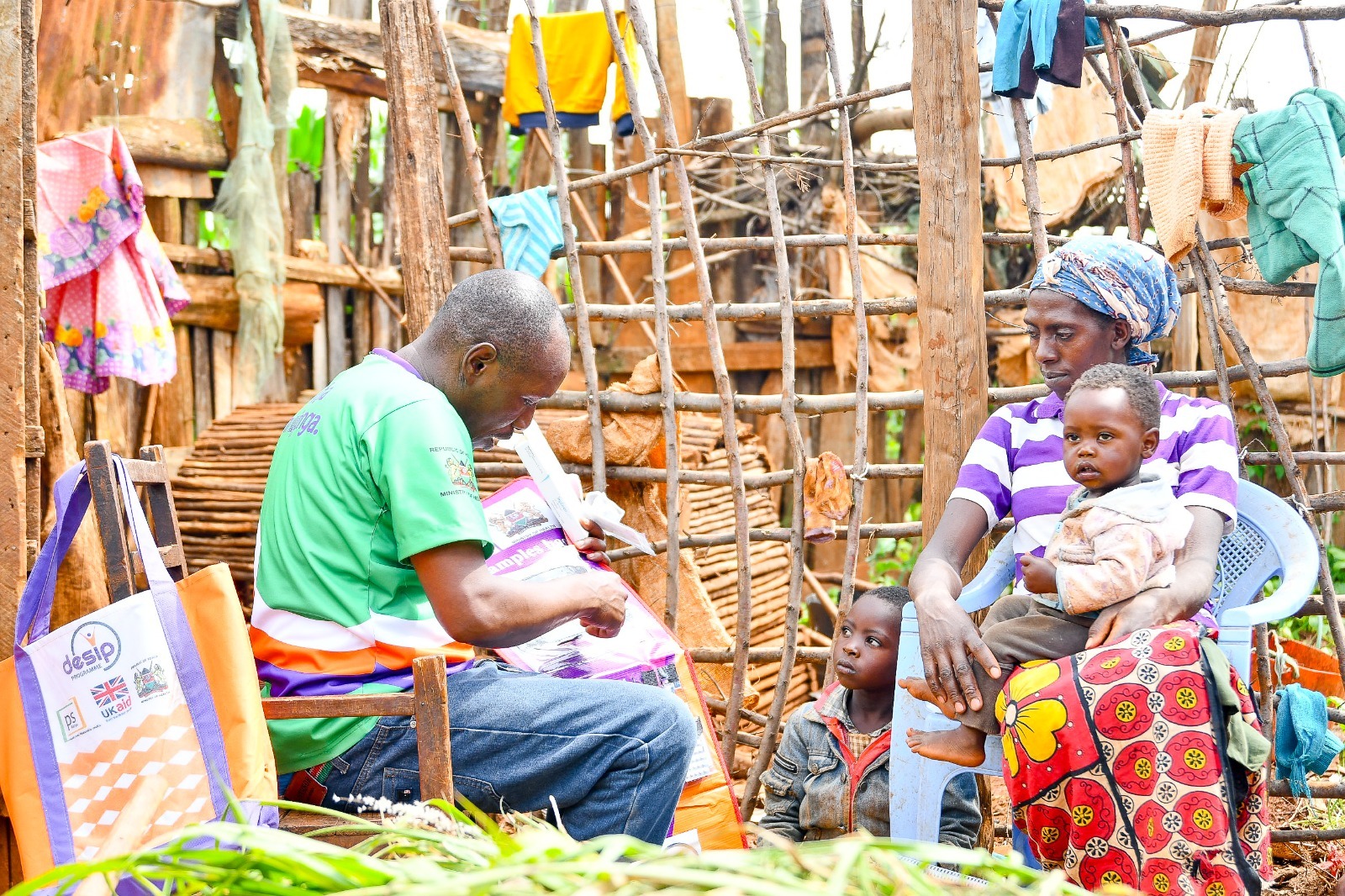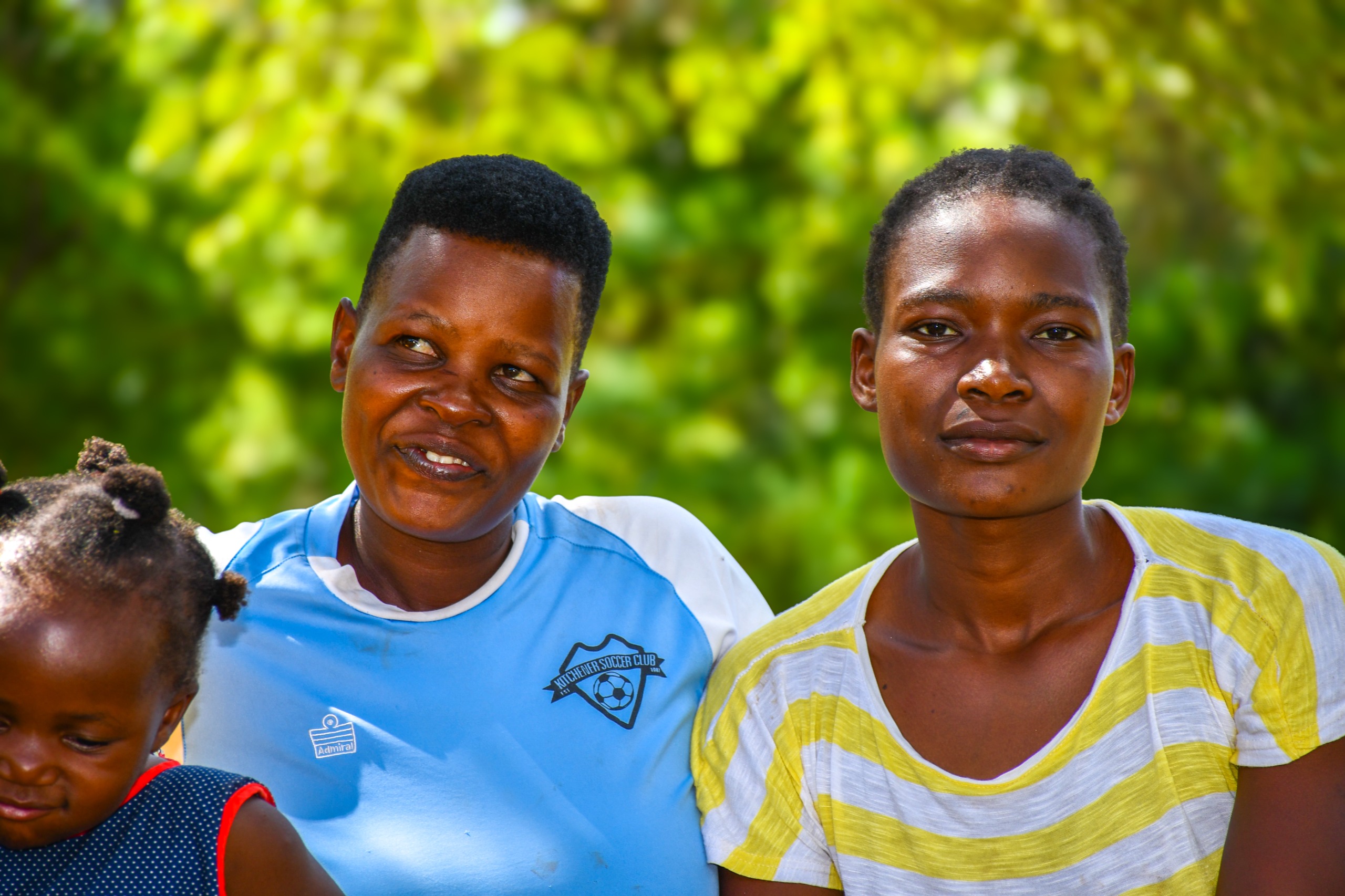Female Genital Mutilation (FGM) is a heinous practice that robs adolescent girls and young women (AGYW) of their reproductive health rights and causes serious mental and physical harm. Internationally, FGM has been recognized as a violation of the human rights of girls and women. It is indeed an extreme form of discrimination against girls and women. Over time, this act has been carried out by traditional practitioners on minors, leaving behind unimaginable health and social consequences. In some settings, evidence demonstrates greater involvement of health providers in conducting FGM procedures since some of them believe that the act is safe when medicalized. This is an entirely misleading perception that could lead to interference with a girl’s health rights and physical integrity. A joint study by UNFPA and UNICEP on the elimination of FGM demonstrated that 89 percent of boys and men and 92 percent of girls and women were strongly opposed to FGM. Kenya Demographic and Health Survey Data for 2022 indicated that FGM prevalence in Kenya is 15% among adolescents girls, and women of reproductive health.
The burden of FGM has a huge implication on the development of any nation, necessitating the agency for elimination. FGM had no scientifically proven health benefit for girls or women. The removal of healthy female genital tissue leaves women’s bodies badly damaged and injured. Moreover, treating FGM complexities and complications puts extreme pressure on the already constrained and limited healthcare budgets in the counties. Whereas the country’s progress towards achieving Sustainable Development Goals is unstoppable, FGM practice could pose devastating setbacks as it limits women’s contribution to the national workforce. Certainly, ending FGM does not only benefit women and girls, as it exemplifies national pride and reclamation of human dignity. Yet, the progress to end FGM remains uneven in most of the counties that still practice this act in Kenya.

Population Services Kenya (PS Kenya), through the Accelerate project, has partnered with the Narok County Government and other 12 counties in Kenya to advocate for zero tolerance for FGM. The project, which is sponsored by the Embassy of Denmark in Kenya, is deliberate in shifting social norms in affected counties while collaborating with county governments to institute competent response and reporting systems for FGM cases. In Narok County, the project is working through Community Health Strategy structures to conduct community dialogue sessions to increase public awareness of harmful traditional practices such as FGM. Community health promoters have been trained to promote positive social behaviour change against sexual and gender-based violence in their respective community units. The ongoing community sessions have been utilised as public declaration platforms against any form of FGM. The dialogue sessions are also being conducted in schools in the form of counselling, which is keen to empower boys and girls with information and skills to prevent and report any form of FGM in their homes.
To eliminate this atrocious and horrific act that demeans human dignity, a collaborative and holistic public healthcare approach must be embraced by county stakeholders. At the community level, opportunities for boys and men to lead dialogues and challenge harmful social and gender norms must not be questioned. This will ensure girls and women are given their voice and right back, enabling them to pursue education, access quality healthcare services, and participate in economic development opportunities. Such efforts will accelerate the creation of a safe society free from FGM, as envisioned in Kenya’s Vision 2030.



